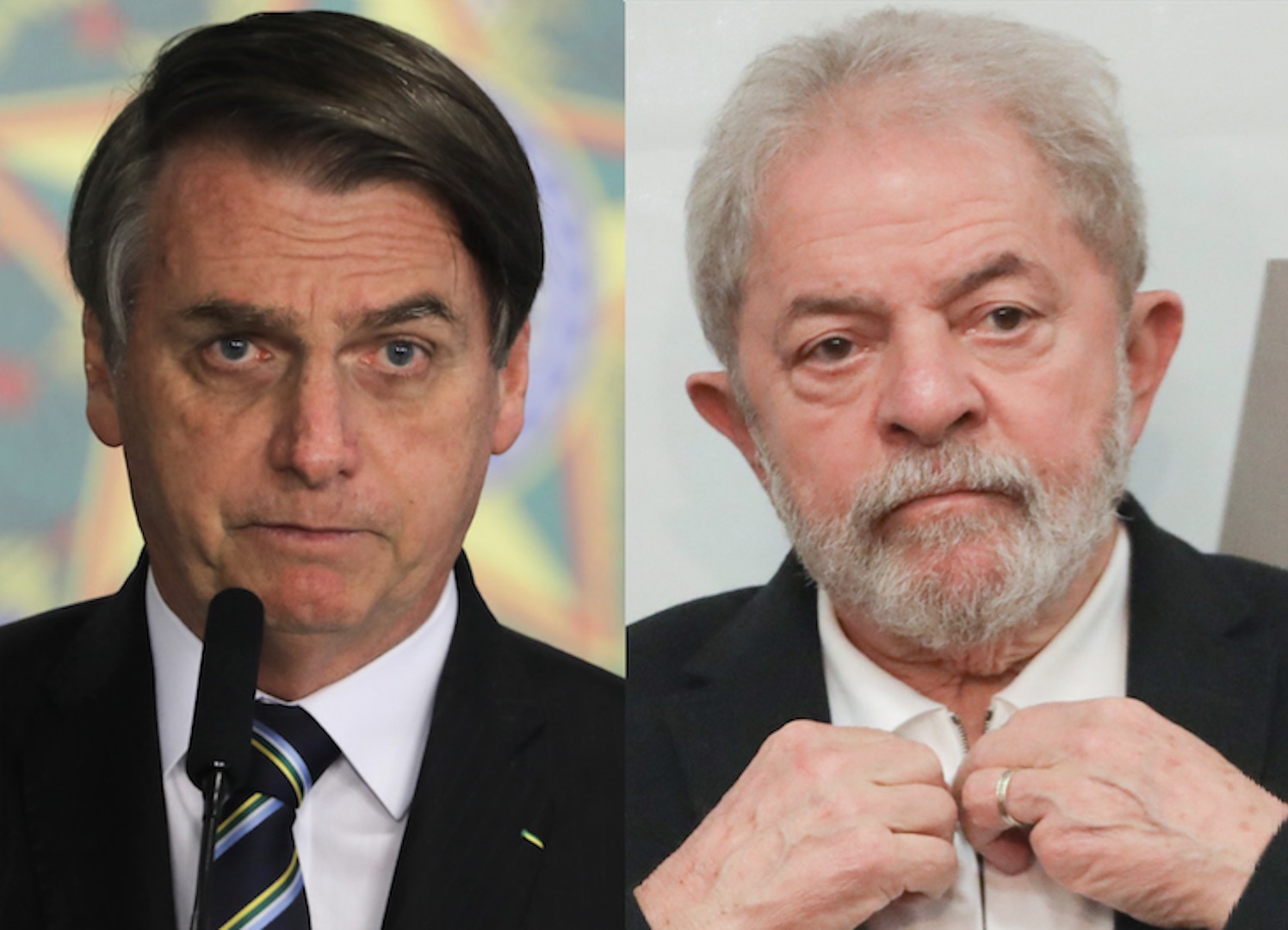RIO DE JANEIRO, BRAZIL – A report in the latest edition of VEJA news magazine shows how President Jair Bolsonaro and ex-president Lula, regarded as leading players in the next race to the Planalto Palace, have so far been instrumental in the municipal elections.
The candidates of both in major capitals are struggling to get off the ground. In São Paulo and Rio de Janeiro, for instance, the names endorsed by Bolsonaro rank second, but – stagnant or on a downward trajectory – are at serious risk of failing to reach the second round. They are Deputy Celso Russomanno and Mayor Marcelo Crivella.

The situation of Lula’s party members is even worse. In the same cities, the PT (Workers’ Party) candidates Jilmar Tatto and Benedita da Silva come in fifth and fourth places, respectively.
Both Bolsonarists and Leftists claim that the electoral situation of their party members should not be charged to the former captain and ex-president’s bill – nor should it be perceived as a weakness of either. The reason: municipal elections have very different agendas and backgrounds from national disputes. In two weeks’ time, when they choose mayors and city councilors, voters will mainly consider local, day-to-day issues, such as the situation of public transportation and the neighborhood emergency room.
Experts and politicians heard agree with this assessment. George Avelino, professor at the Getúlio Vargas Foundation (FGV) and political scientist, says that not even the Covid-19 pandemic, with its economic impact and over 160,000 deaths, was capable of nationalizing the debate.
Avelino bets that despite having a common argument up their sleeve, Bolsonaro and Lula will suffer different impacts should their protégés be defeated at the polls. The President will try to present himself as the one responsible for the achievements and distance himself as much as possible from the defeats of his allies, in a well-known expediency, says the FGV professor.
This assessment is based on facts. On Friday, October 30th, Bolsonaro welcomed Rio Mayor Marcelo Crivella at the Alvorada Palace and recorded a video supporting his reelection. The meeting occurred a few hours after the President, in his traditional Thursday live stream, shyly argued for a vote in Crivella, saying that anyone who did not wish to vote for him should rest assured. There would be no fight for that.
“Bolsonaro will hardly commit to a candidacy to be defeated. He would only emerge to reap the rewards of a victory. The President will either stay close or far out for convenience,” says Avelino. Lula, on the other hand, would struggle to distance himself from the results of leftist candidates.
“Whether or not Lula is directly involved in a candidate’s campaign, it’s a leftist defeat and a defeat for Lula, because the party and the ex-president are indissociable and share political projects that have become more or less clear to the average voter,” adds Avelino. The ex-president has always bragged about being a campaigner. Evidence of this would be the successful elections of newcomers to the Presidency in 2010 (Dilma Rousseff) and Mayoralty of São Paulo in 2012 (Fernando Haddad).
Leftists do not give in to the adverse picture in the race for city hall capitals. They claim that there are two weeks left to vote and, therefore, their candidates may gain ground. They add that even if this should not be the case, the municipal election will have little impact on the next presidential succession.
They recall that when Lula won the presidency in 2002, the party was not running capitals. They also say that after the beating taken in the 2016 municipal elections, PT built the largest bench of federaldeputies in 2018.
“The PSDB (Brazilian Social Democratic Party) was the most voted party in the municipal elections in 2016, while the PT lost more than 60 percent of its voters compared to the preceding municipal elections. Two years later, the PT elected the largest bench in the Chamber along with the PSL (Social Liberal Party). The election for president leads voters to reflect on the society they project, while in the election for mayor the voters expect the bus to travel, the health center to operate and the potholes to be covered up,” says political scientist Alberto Carlos de Almeida, author of the book ‘O Voto do Brasileiro’ (The Brazilians’ Vote).
Source: Veja

